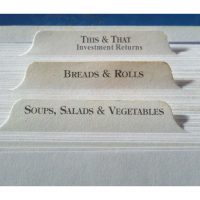What’s your definition of having greater financial independence? I believe we should retire the word retirement and use financial independence instead. When you hear retirement, do you think of things like not working, receiving Social Security, and the like? You aren’t alone.
Some people believe financial independence means a money windfall, like winning the lottery. Windfall paydays include getting an inheritance or signing a big sports contract. However, many windfall income recipients often find themselves in bankruptcy court. They discover the harsh reality that these forms of sudden windfalls have limits. Unfortunately, these often are one-time paydays and don’t replenish on an annual basis.
Independence on shaky grounds
If you had $50,000 guaranteed for the rest of your life would you feel financially independent? What if I sweeten the pot and added an annual cost-of-living adjustment? That doesn’t mean that you can live lavishly (unless you think $50,000 guaranteed is lavish). It just means that you don’t have to worry about where your income is coming from.
There are some people who have large accounts worth hundreds of millions if not billions. How much money can they spend out of their bank accounts without running out of money? They too could go bankrupt if they spent it all. Many of them have experience with generating income from their assets. One example is those who generate income from owning rental property. Rather than sell the property, which is likely more than the sum of the monthly rent, they live off the rental income. In fact, if rental market conditions allow, they get to raise rents. That is a great hedge against inflation.
Many people who have accrued large balances in 401(k) accounts have no background in generating income from these accounts. I have already seen people spend large amounts of their 401(k) accounts early in their retirement. One person lost much of their money by giving loans to family members as well as starting a business. Another made an assumption that they could spend more on travel early in their retirement without running out of money. Time will tell if that will run him out of money.
Is $1 million equal to greater financial independence?
We often hear about athletes getting million-dollar signing bonuses. But do they really get $1 million? Do you think of your income in gross terms or after-tax terms? The million dollars have not been taxed. Federal, state, and local taxes could easily cut that amount by around half. What if they get divorced or have child support to pay on top of the taxes?
That’s a similar challenge to people who have million-dollar 401(k) balances. Depending upon the size of their withdrawals, they could be paying a 39.6% marginal rate on their federal taxes. If they live in California they may face a 13.3% marginal tax rate as well.
What’s your definition?
Most of us are used to Social Security eligibility defining our retirement day. Instead, I believe you should define your own financial, independence day. Doing so requires a qualitative and quantitative definition. Let’s stick with the quantitative for right now. Let’s say that means living happily ever after on $100,000 per year, cost-of-living adjusted. How can you generate that income with a strong probability that it won’t run out? The test should include varying market conditions and your ability to control your spending. After all, the markets will do what the markets will do. You have the greatest control over how much you spend.
Ready to find out where you stand along your journey to your financial independence day? Schedule a meeting or Contact us today to learn more!










